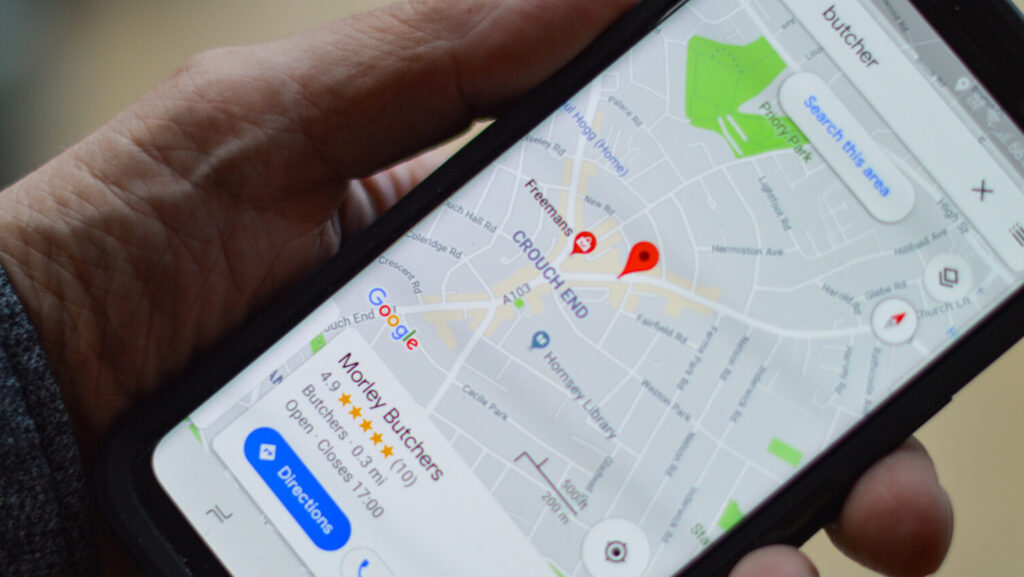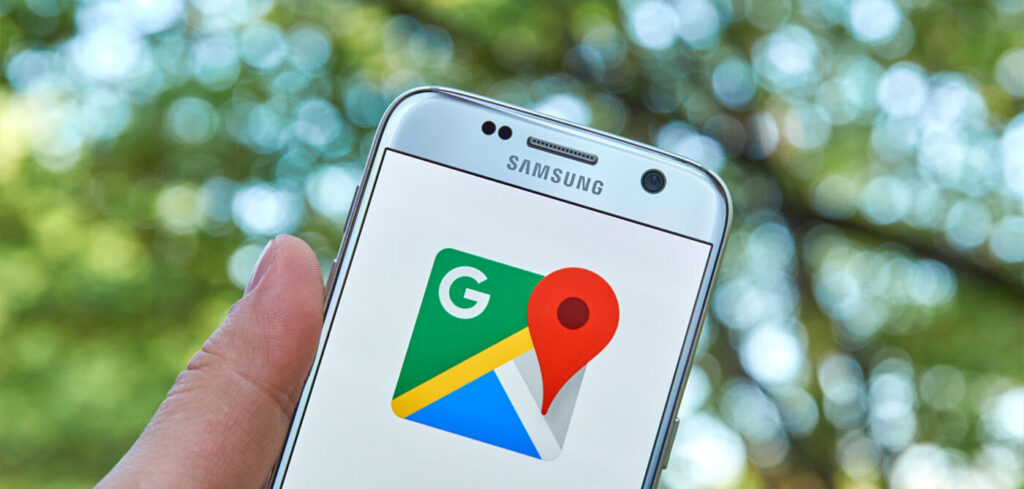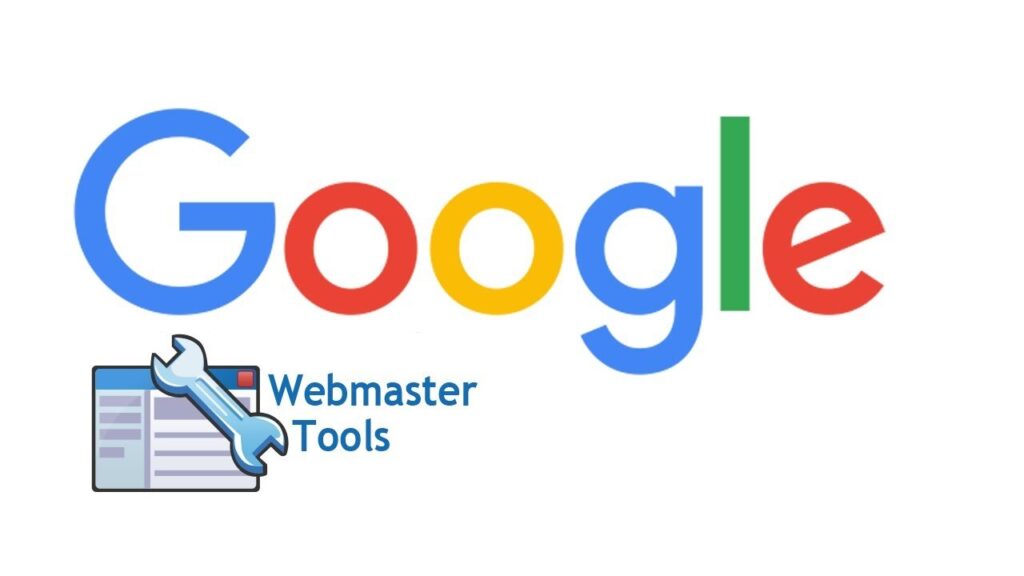Importance of NAP Directory Submissions

NAP Directory Submissions If you want to get your local business noticed, you need to have a local search engine optimisation (SEO) strategy. Your customers are Googling businesses just like yours, and if you are not up there are at the top of the list, they will be going to your competitor instead. As we get most of our information these days from a Google search, it is crucial, therefore, that your company has the appropriate business information listed in the right places in order to get yourself to the top of the search pile. And, when you Google a business these days, you’ll have noticed the Google Local Pack. This set of information that comes above the rest of the search results will include a map pinpointing your location, your business’ name, your phone number, and your opening hours. This information makes it so much easier for your customers to find you, and you need to be doing everything that you can to feature in this section. Directory Submissions And SEO Local SEO is heavily reliant on NAP (Name, address, phone number) directory submissions. This is also sometimes called NAPW to include a business’ website URL. Your business needs to have its NAP details registered on as many online directories as possible. You’ll need to create a strategy that builds citations for your local business. There are many different sites on which you should get your company listed as soon as possible. These include: Google My Business Facebook Foursquare Trip Advisor Yelp Mapquest Apple Maps The more information that you can get online about your business, the better. Structured Vs Unstructured Citations The NAP information about your business can be formatted in a structured or an unstructured way. For a structured citation, you will see the information is laid out in a logical manner. With name, address, and phone number all laid out to match a specific format that the other listings on the site are found in. An unstructured citation will see the information laid out in an informal manner. This may be more like in the form of a blog post, where the companies contact details form part of the call to action at the end of the piece. This type of citation is still of great value to your local SEO strategy, it just takes a little bit more effort for the search engine to scrape this information and return it as a result. Why Use Citations for Your NAP? Getting your companies valuable details listed on as many listings as possible is vital, as Google and other search engine trust the validity of the information that is provided on them. But, if your company has its own website, link building is a strategy that you will employ within your general SEO. The idea behind link building is, that having your website linked to from a reputable site gives in the leg up that it needs. This recommendation from a friend in a higher place helps search engines determine who is a reliable source. And, having your company listed on as many of these business listings sites along with a link to your website will help your link building strategy immensely. Many listings sites offer the opportunity for customer reviews. Nothing validates a business more than the real experiences of a customer. Of course, you will need to maintain an excellent customer service record in order to attract lots of favourable reviews. However, the most positive reviews you get online, the better the position that this will put you in. Keeping Your NAP Directory Submissions Up to Date The information about your business that is found online should be kept up to date. Keep tabs on the information that is out there and where it is listed. If anything changes, such as the business name, your address, phone number, website URL, or even your opening hours, be sure and update all of the relevant citations as soon as possible. You are in control of your business information, and having incorrect information out there in the public domain will ultimately damage your business. Customers will mistrust your business if the information that you have listed is not correct. Getting your local business noticed Getting your local business noticed and standing out above your competitors means that you need to invest some time and effort into getting your company registered with all of the relevant business listing sites. This is something that you should take responsibility for doing, as overall it will make a long-lasting impact on your business.
The SEO Triangle

The SEO Triangle You don’t need us to tell you that search engine optimisation (SEO) matters. This has been the case ever since the rise of online business well over ten years ago now, and repeating these points would be as useless as telling you that a website is a key to modern success. You know that already. Or, at least, we very much hope you do! But, while SEO might not be a new concept, it has adapted and evolved in recent years to become a more complicated matter to manage and get right. Changing requirements of search engines and customers mean that, now, SEO strategies should be multi-level approaches to everything online. Still, countless companies fail to consider more than the basic back and forth between business and search engines that SEO brings. We aren’t about to sit here and tell you that appealing to search engines doesn’t matter, because it very much does. At its heart, [search engine] optimisation means optimising your content, website, and branding to appeal to and rank higher on top-rated engines like Google. But, as content options increase and consumer selection become ever more varied, stopping your efforts there isn’t going to do you any favours. Instead, what was once a straight-line connecting companies and search engines has become a triangle. Or, to call it by its proper name, an SEO triangle. What is an SEO triangle? An SEO triangle is a new way to approach your SEO focus and increases your chances of conversions as a result. Far from being one thing, though, this is more of a marketing concept that helps streamline and expand your SEO reach depending on current company needs. What’s more, different triangle approaches can apply to different stages of your journey. Take, for example, when you’re looking at SEO on the whole. This means considering your broader search engine efforts, and thus, your triangle may include critical considerations such as – Each of these have long been vital indicators of SEO success, and you stand no chance at high rankings and organic conversions if you don’t first take care of them. A technically sound website with varied content and relevant links is the very least you can do for your SEO. However, even once you’ve tackled these basics, delving deeper into SEO with a more specialised triangle may work. For instance, you might want to consider looking at the content, image use and link relevance. In this approach, you’re focusing directly on your content creation and considering the impact it has on your broader business efforts. Now, businesses must consider everything from blog posts to YouTube videos and beyond, as well as providing links for brand relevance, and monitoring analytics to judge results and conversions. By putting your knowledge of SEO basics towards individual triangles for each area in this way, you should find you’re able to break this matter down into easy-to-manage chunks. Whether you’re tackling content, web design, or more, this should help both users and search engines understand who you are, what you do, and why/when your listings are relevant. What can SEO triangles do for you? At this stage, you may be thinking, ‘that’s great, but doesn’t general SEO already bring those benefits?’ You wouldn’t be wrong. If all you stood to see from your triangular efforts was a high search ranking, then there are much easier ways to approach the matter. Search engines aren’t hard to impress, remember, as long as you’re offering relevant products with keywords, exciting content, and appealing website design. So, what exactly can SEO triangles do for you? In all honesty, quite a lot, and you only need to keep on reading to find out why. #1 – Substantially higher organic conversions SEO triangles, especially those focusing around content and its relevance, can work wonders for organic conversions that you’d struggle to find from back and forth SEO efforts. Content is, after all, a critical digital marketing strategy for standing above the crowd and attracting audiences that might never have even heard of your product. By providing informative, unsalesy blog posts, for example, you can increase the searches you appear within and appeal to consumers who might not even be looking to buy. If all goes well, quality content could lead them to click on your shop. Or, a call for newsletter signups could see them joining your email listings and becoming potential conversions that way. Either way, these are organic opportunities you might never achieve otherwise. #2 – Analytics you can use As big data and collated analytics increase in business, a generalised approach to anything you do could leave you struggling to gain any real insights. Even with automation in place, a general focus on ‘SEO analytics’ will rarely uncover anything useful. By comparison, a broken-down, triangular approach makes for analytics that you can always use. A content triangle, for example, can lead to direct correlations between organic leads and each content form you tackle. Equally, keyword-focused triangles can help you to determine precisely which terms lead to the highest conversions. Each of which ensures you’re able to… #3 – Tailor SEO efforts With countless companies now fighting for the top spot, tailoring your every SEO effort is fundamental to help you continually come out on top. That’s fundamental stuff given that the first five organic results on each search benefit from click rates as high as 67%. By taking ample time to understand each of your unique SEO undertakings, you can guarantee relevancy that stands up even to changing search priorities or consumer habits. In an age where business is continually evolving, especially as we move into 2020, this can make all the difference between success and failure. The best ways to implement triangular processes SEO triangles may sound well and good, but you’re probably wondering how exactly you go about implementing efforts like these into your processes. The good news is that this honestly couldn’t be easier but, as with
What is Local SEO & Why is it Important?

Local SEO & Why is it Important You should already know that SEO is a vital part of your marketing strategy. The majority of customers will use online searches to find businesses when they are in need of goods and services, and if your business does not rank well on the search results, you will struggle to drive traffic to your website and increase sales. Unless you have a detailed SEO strategy in place or you outsource to a digital marketing agency that can help you to manage your SEO, you will struggle. However, even amongst businesses that put a lot of attention into their SEO, there are some big gaps in their strategy. The thing that people tend to neglect the most is local SEO, which is a big problem. Local SEO is incredibly important and if you are not making it a priority, you could be missing out on a lot of potential customers. This guide will help you to understand just why local SEO is so important and how you can improve yours. What Is Local SEO? First things first, what is local SEO? Local SEO helps your website to rank highly on searches that relate to the local area. This covers searches that include the name of a state, city or town and it also includes phrases like ‘near me.’ When people use a phrase like ‘near me’ or ‘SEO Agency Newcastle’ in their search, Google will use their location data to work out where they are and account for their location when finding search results. A lot of people make the mistake of assuming that their standard SEO strategy will also ensure they rank highly for local searches, but that isn’t always the case. Your business may rank higher than your competitors in general searches but they could still be beating you in local searches, which is a big problem for you. Why Is It Important? If you own a brick and mortar business, it’s especially important because the majority of your customers will come from people that perform local searches. For example, if somebody is looking to go to a shop to buy a sofa, they’re not just going to search ‘sofa,’ because that will bring up results for businesses around the globe. Instead, they will add the name of the city or the zip code so they can find somewhere nearby. If you don’t rank highly on local searches, you miss all of that traffic. The following statistics published by Google show just how effective local SEO can be: 50% of people that performed a local search on their smartphone visited that store the very same day. 34% of those that did the same search on a computer or tablet visited a store that day. 18% of all local searches on a mobile result in a sale within 24 hours. 50% of local searches on mobile are from people that are looking for a business address or phone number. 71% of people surveyed said they search a store before visiting it for the first time, to check that it exists and it is open. 97% of consumers surveyed reported that they searched for a local business online in 2017. These statistics about local SEO demonstrate two important things. Firstly, they show that the majority of consumers use local search when looking for a business. But more importantly, they show that when consumers perform local searches, the rate of conversion is very high. When people are searching using local terms, they have more intention of making a purchase. However, if people are just browsing without any real intention of buying something, they may use a more general term to see what products are available. The other reason that local SEO is important is that it makes life easier for the consumer. If your website only ranks for general search terms, the consumer will have to search and then go onto your website and check the address to make sure that you are local. Your site will also get lost in amongst businesses that are not local, and could easily be missed. It’s important that you make life easy for the consumer, and ranking highly for local searches means that they can find your business online faster. Who Benefits from Local SEO? The short answer is, anybody that runs a brick and mortar business benefits from local SEO. If you run a retail shop or a restaurant, for example, a lot of your business comes from local searches. Businesses like solicitors also rely heavily on local searches. The only businesses that do not need to worry about local SEO as much are the ones that operate exclusively online. However, it could still benefit you in some ways. If people are trying to live a more sustainable lifestyle and put back into the local community, they may prefer to use local businesses, even when ordering online. In that case, ranking well for local search terms could still benefit you even if you do not have a brick and mortar business. How Can You Improve Your Local SEO? If you do not currently have a strategy in place for improving local SEO, there are a few simple things that you can do. Firstly, you need to change your content strategy and try to introduce more local keywords on your website. This should help you to climb the local search rankings. Listing yourself on local directories, like Google business, will give you an instant boost. It also means that customers can get your phone number and address right there and then, and they can call at the touch of a button if they need to. If you are still lost and you don’t know how to improve your local SEO, get in touch with Direct Submit today. We can discuss your digital marketing strategy with you and find ways to improve your local SEO rankings. Don’t neglect this important aspect of your SEO strategy because you could be
Introducing Keyword Research

Keyword Research Guide While Google consistently keeps SEO specialists on their toes with updates to their search engine algorithms, one factor has stayed consistent over the past few years, and that is keyword research. For inbound marketers looking to optimise their websites, keyword research has – and should always be – a priority. What is keyword research? Keyword research is simply the process of sourcing and analysing key search phrases that people tend to put into search engines like Google when searching for certain products or services. By gaining insight into what the most popular search terms are, you can utilise these to enhance your content marketing strategy and ensure that you see better results. Why is keyword research important? Keywords are a crucial element of helping websites and blogs to rank in search engines. Keyword research can help to inform businesses about the topics that people care most about and are searching most about in relation to a certain industry or field within an industry. By combining keyword knowledge with the right SEO support, you can utilise those keywords and phrases to enhance your content marketing strategy and boost your search engine ranking. How can you research keywords effectively? Step 1: Make a list of all relevant topics to your business: Start by thinking about the key areas that are linked to your business. So, say you run an eco-friendly candle shop, then key topics could include: scented candles, recycled candles, and eco-friendly candles. Step 2: Fill those topic areas with keywords that are relevant to your business: The next step is to plot out the actual keywords that could be used. For example, some of the relevant keywords could include: eco-friendly candles, candles, soy wax candles, vegan candles, and recycle candles. Step 3: Research related search terms: Once you’ve plotted out a few key terms to focus on, the next step is to look for secondary keywords and phrases, such as: eco-friendly candles UK, eco-friendly candles alternatives, vegan candles UK, soy wax candles London. These related search terms are crucial, as they help you to better understand what users are searching for beyond an eco-friendly candle, such as in what region, for instance. Step 4: Look at how competitors are ranking for those terms and phrases: The next step is to consider who your key competitors are, and take the time to look at the keyword strategy that they have in place. Utilise search engines to check what your competitors are ranking best for, and consider how you can outrank them with your own effective keyword use. Remember, the power of keyword research is linked to better understanding your target audience and target market and how they are using the internet to search for specific content, products or services. By utilising keyword research, you can better understand what users are searching for, the number of users searching for each key phrase, and how these users want to receive the information that they are looking for when taking advantage of search engines like Google.
What is SEO and Why Should my Business Use it?

What is SEO and Why Should my Business Use it? It’s no secret that more and more people are searching for products and services online. What’s also no secret is that if you’re not on page one of search result pages, you may never get seen. By starting with the simplest steps and working up, you lay a great foundation for taking a more creative approach to the in-depth tactics. In this SEO starter guide, we will cover what we believe to be the essential actions to begin your SEO journey. Does My Company Need SEO? According to a study by InFront Webworks, the first page of a Google Search Result receives 95% of the traffic! You might have the best product range, but the bottom line is if people don’t know about it, they can’t buy it. The old adage – “build it and they will come” – no longer applies! What is SEO? At its core, search engine optimisation (SEO) is a form of digital marketing. It is the practice of strategically building your website in order to naturally rank higher in search results. The goal is simple – to drive more traffic and sales. Unfortunately, that is about the only thing that’s simple about SEO. You know how things work on the internet. One day it seems the entire world is focused on a nation-wide scandal, the next day you get the same dog video sent to you half a dozen times. The same goes for SEO. You must keep track of emerging trends, changes in how search engines rank pages, technical advancements in the industry and how your audience is reacting. It sounds like a lot to take in. While there’s certainly a lot of strategies and information to grasp, it helps to keep a simple mentality when looking at SEO. Everything you do related to SEO has the same goals as any other aspect of your business: > Generate Sales > Serve Your Audience > Build Relationships > Increase Brand Reputation Google and other search engines don’t play favourites. They are going to place the most relevant and informative websites in front of users. That’s what their reputation depends on. Whatever your industry, your goal is to be the most informative and trustworthy source for your audience. That’s what leads to traffic, sales and repeat customers, and this leads to a higher ranking in search results. We call that a win-win. Direct Submit is a North East based digital marketing agency that specialises in all things SEO. Set up over 18-years ago, we have been continually adjusting and tweaking our proprietary SEO strategies, which has made us leaders in our industry. For further information please call us on 0845 272350 or visit our SEO Services website.
National SEO & Your Business

National SEO & Your Business Direct Submit works with businesses on both the local and national levels. Whether you need a small SEO campaign or a complex multi-city campaign, we can help. National SEO is a long-term investment that can separate your business from the competitors. Although similar to local SEO, National SEO focuses primarily on ranking for broad keyword terms rather than ranking for specific geographical terms. In today’s tech-driven society, businesses need to focus more on their online presence now more than ever. The amount of companies on a national level using SEO is much higher than that of local businesses, making it a very competitive market. National SEO strategies will allow your business to transform how it competes in the market as it can extend your reach across the country and capture your ideal client base, resulting in positive ROI. Our National SEO strategies will optimize various facets of your website to ensure positive search engine visibility. What Would a National SEO Campaign Look Like? With over 90% of people looking for a service or product online, it is imperative for your business to be visible in the search rankings. Here are some of the SEO tools we will establish in your National campaign: > Advanced keyword research > On-site content & SEO optimisation > Google Maps optimisation > Citations > Review strategy > And more! Our Direct Submit experts develop a custom strategy tailored to your brand and your industry. We know how important it is to capture commonly used phrases as well as unique keywords that maybe your competitors aren’t targeting. Establishing a national presence takes time, but trust the experts at Direct Submit to do everything we can to get the job done right. Our outstanding customer service and SEO knowledge will have you feeling confident and in the right hands. For more information on our national seo marketing services, give us a call on 0845 2722350 or complete our online contact form for a FREE quote.
Google & Businesses During Closures

Google Advice for Businesses During Temporary Closures Businesses should limit, not disable, their sites during temporary closures, Google says. A full takedown can result in losing Search Console data and make it more difficult to ramp back up. Businesses are continuing to feel the fallout from the coronavirus pandemic, with some forced to temporarily shut down. To help business owners preserve their visibility in Google search, Google has published recommendations on how to properly limit your site’s functionality if you need to pause operations. Avoid disabling your whole site. Disabling your site, even for just a few days, can have a significant effect on your visibility in search, Google reiterated. You still want people to be able to find your business and learn about your products or services in the event you’re just closed temporarily. A full site takedown will make ramping back up more difficult as your site will need to be reindexed. It can also result in Search Console verification failure and a loss of reporting data. Last resort options. If you absolutely need to take your site down, Google recommends the following options: >>> For a temporary takedown, use the Search Console Removals Tool. >>> If you’re taking down your site for one or two days, you can return an informational error page with a 503 Service Unavailable code. >>> For longer site takedowns, put up an indexable homepage placeholder for searchers using the 200 HTTP status code. Consider limiting site functionality instead. If you intend to resume regular operations, Google recommends the following alternatives to preserve your search visibility: >>> Keep users informed with a popup or banner explaining how your business has changed. Follow Google’s guidelines for banners and popups to ensure that you’re not interfering with the user experience. >>> Adjust your structured data to reflect event updates, product availability and temporary closures. You can also mark your business as temporarily closed through Google My Business. >>> E-commerce sites should follow Google’s Merchant Center guidance on availability and, if necessary, disable cart functionality. >>> Inform Google of site updates by requesting a recrawl through Search Console.
Increasing Importance of Online Marketing

The Increasing Importance of Online Marketing Online marketing is something that has been imperative for businesses for a few years now, but in the wake of the current Coronavirus pandemic, it has never been so important. As the world is pretty much on lockdown, people are relying on the online world to get them through this challenging time. People are relying on the internet to find out information, to speak to their friends and family, to keep working and earning money, to keep themselves entertained and to buy essentials. Therefore, if your online marketing efforts are not up to scratch, then perhaps this isolation period is the time to be working on them. Online Marketing or digital marketing is essentially any form of marketing that exists online, so that includes marketing on search engines, social media, email, and other websites that connect you with your current and your prospective customers. Then, more importantly, than all of them is your own website and any of your own businesses online branding materials such as email marketing and online brochures. Online marketing also includes things like Search Engine Optimisation (SEO), Content Marketing, Social Media Marketing, Pay Per Click (PPC), Affiliate Marketing, Native Advertising, Marketing Automation, Email Marketing, Online PR, and Inbound Marketing. In today’s online and fast-paced, if you’re not making the most of this online marketing, then you are really missing out. As people or more importantly, your consumers are online and connected more than ever before, you need to be where they are and connecting to them where it matters. The way we live our lives now means that people are always on their phones or laptops anyway, but due to the Coronavirus this online usage will spike enormously, and people will be checking emails more, going on social media apps, and interacting online via voice technology and now looking to do their day to day activities online. More and more people are embracing online shopping, online teaching and learning, reading stories to kids online, playing music and creating concerts online, doing personal training sessions online and even joining in pub quizzes online. It is when they are doing these activities and getting through this tough time that your customers or potential customers need to see you too. Online marketing doesn’t mean that you have to be in your consumer’s face so that they get fed up of you, but what it does mean is that it is easy for customers to access your business, your products or your services, it makes it easier for them complete purchases and buys your services on whatever medium you are marketing on, and if you choose to go with multi-channel marketing, then this lets your customer decide and gives them a choice of which platform they want to use. Multi-channel marketing is not only good and convenient for your customers, though, but it is also good for your business as there are many channels a company can take advantage of to reach potential customers such as online advertising, blogging), direct mails, email marketing, and newsletters. As these marketing channels continue to grow, this is even more of a reason why you should be making the most of them. If you don’t do this now, but your competition does, who do you think customers will go to? The business that they see has a presence on social media, one who’s offers show up when they are scrolling through their phones. These people are valuable customers, and if you want to be able to tap into them, then your marketing campaigns must be online and on as many channels as are relevant to your business, product, or service. It is up to you, however, to make your business or brand stand out from the crowd in the online marketplace and cut through the noise to be able to reach as many consumers as possible. The world of online marketing is so beneficial, but at the same time, it can be a minefield if you’re not used to it. With so many different channels and platforms you can use to advertise your business, where do you begin? What can online marketing do for you? The first thing you need to do for your online marketing efforts is to invest in your website. This is one of the most essential parts of your business. Not only does your website act as an online shop-window, but it’s even better than that as it is somewhere that your customers get to explore rather than just walking past the front. They are able to navigate their way around your website and find out more information than they could ever possibly find out from a real shop window or a flyer through their letterbox. Your website is now your first impression; when someone types in your business name or even your service and location in Google and you come up, you want to make a good impression. If you have an outdated website, one that doesn’t look professional or lacks information, then your customers may well be put off and will go elsewhere. Your web design could actually make or break the success of any other advertising you do. Not only do you need an excellent website, but your customers need to be able to find it, and in inline marketing terms, this means that you need to be up to date on search engine optimization, or SEO. Working on your SEO and investing money into it means you can improve where your website ranks on search engines like Google for searches related to your products or services. It involves incorporating keywords related to your products or services on your site so that when users search those keywords in search engines like Google, relevant pages appear in results. You can identify the best keywords for your pages by doing keyword research to see what your target audience is searching for, as well as which keywords your competitors are targeting. You want
Google Asked About Advance Warning of Penalties

Google Asked About Advance Warning of Penalties In a recent Google Webmaster Hangout a publisher affected by a link based penalty said the manual action put a strain on his business. He asked Google’s John Mueller if it were possible to give a warning before imposing a penalty that dries up all search traffic. The publisher mentioned that he employed twelve people but that the penalty has caused a disruption in his business. An advanced warning would have given him a chance to avoid that disruption. The Difficulty of Sending a Penalty Warning Mueller gave a thoughtful answer explaining that there are considerations beyond the publisher. Mueller offered this answer: “Okay, now with regards to sending a warning, that’s something we do discuss from time to time. I don’t know if that’s something that will change. The primary reason why we tend not send a warning is that when we run into this kind of situation where the web spam team notices that there’s a problem, then usually that’s something that’s affecting the normal search results already. So that’s something where users are seeing bad results and we know users are seeing bad results, then that’s something where we want to take action as quickly as possible and to resolve that. So for the most part, that’s always kind of tricky to say we would send a warning when we know it’s currently in a bad state.” Every publisher affected by a manual action penalty needs to know this. Mueller offered this insight: “One other thing, especially with regards to linking reconsideration requests… one of the tricky parts there is that sometimes the site’s rankings is partially due to some of these link schemes that they were doing. So by fixing those link schemes and removing them or disavowing them, then you’re removing some of that… artificial support that was for that website as well. So it won’t necessarily be the case that when the manual action is resolved that it’ll pop back up right at the same place as it was before. Just because you’ve… removed that artificial aspect and like well you’re in the natural place again which might be a little bit lower than before. It depends a little bit on how the algorithms looked at that in the past.” The question about receiving a warning before a penalty assumes that given the opportunity to fix the bad links the publisher will automatically return to the top of the search results. And that’s rarely the case. What happens is that the site will begin ranking where they are supposed to rank. They have to start from this lower position and work their way back up the ranks. I’ve seen this many times where a business removes links after receiving a manual action, fully expecting to return to the search results and is disappointed to see their site ranking lower. In my opinion, getting out of the manual penalty is just the first step of rehabilitating a site. The next step is to get moving on creating a sustainable link building strategy that will not violate Google’s guidelines. When it comes to rankings you’re either working or falling behind. Will Google Offer Warnings Before a Penalty? Considering what John Mueller said, it doesn’t look like Google is going to offer warnings before issuing penalties in the situation where the spam activity is working. Google’s first priority is to fix the search results so that they are not showing artificially boosted web pages.
March 10th Google Search Algorithm Update

March 10th Google Search Algorithm Update The online SEO blog provided by the Search Engine Round Table is reporting that seeing some chatter from March 9th through March 11th (today) about a possible Google search algorithm update. The chatter is not explosive but there does seem to be enough chatter to write about it here. Some of the tools are also showing the change but not all. The last unconfirmed update started in late February through March 3rd to so, but again, Google did not confirm that one. A WebmasterWorld thread has this chatter thus far, starting March 9th. For more information please visit the Search Engine Round Table to read more on the reproted March 10th Google Search Algorithm Update.
